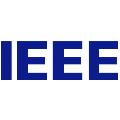In this paper, we prove that any `appropriate' folded Reed-Solomon and univariate multiplicity codes achieve relaxed generalized Singleton bound for list size $L\ge1.$ More concretely, we show the following: (1) Any $(s,\gamma)$-folded RS code over the alphabet $\mathbb{F}_q^s$ of block length $n$ and rate $R$ with pair-wise distinct evaluation points $\{\gamma^i\alpha_j\}_{(i,j)\in\left(\{0\}\sqcup[s-1],[n]\right)}\subset\mathbb{F}_q$ are $\left(\frac{L}{L+1}\left(1-\frac{sR}{s-L+1}\right),L\right)$ (average-radius) list-decodable for list size $L\in[s]$. (2) Any $s$-order univariate multiplicity code over the alphabet $\mathbb{F}_p^s$ ($p$ is a prime) of block length $n$ and rate $R$ with pair-wise distinct evaluation points $\{\alpha_i\}_{i\in[n]}\subset\mathbb{F}_p$ are $\left(\frac{L}{L+1}\left(1-\frac{sR}{s-L+1}\right),L\right)$ (average-radius) list-decodable for list size $L\in[s]$. Choose $s=\Theta(1/\epsilon^2)$ and $L=O(1/\epsilon)$, our results imply that both explicit folded RS codes and explicit univariate multiplicity codes achieve list decoding capacity $1-R-\epsilon$ with evidently optimal list size $O(1/\epsilon)$, which exponentially improves the previous state-of-the-art $(1/\epsilon)^{O(1/\epsilon)}$ established by Kopparty, Ron-Zewi, Saraf, and Wootters (FOCS 2018 or SICOMP, 2023) and Tamo (IEEE TIT, 2024). In particular, our results on folded Reed--Solomon codes fully resolve a long-standing open problem originally proposed by Guruswami and Rudra (STOC 2006 or IEEE TIT, 2008). Furthermore, our results imply the first explicit constructions of $(1-R-\epsilon,O(1/\epsilon))$ (average-radius) list-decodable codes of rate $R$ with polynomial-sized alphabets in the literature.
翻译:暂无翻译
相关内容
Alphabet is mostly a collection of companies. This newer Google is a bit slimmed down, with the companies that are pretty far afield of our main internet products contained in Alphabet instead.https://abc.xyz/





